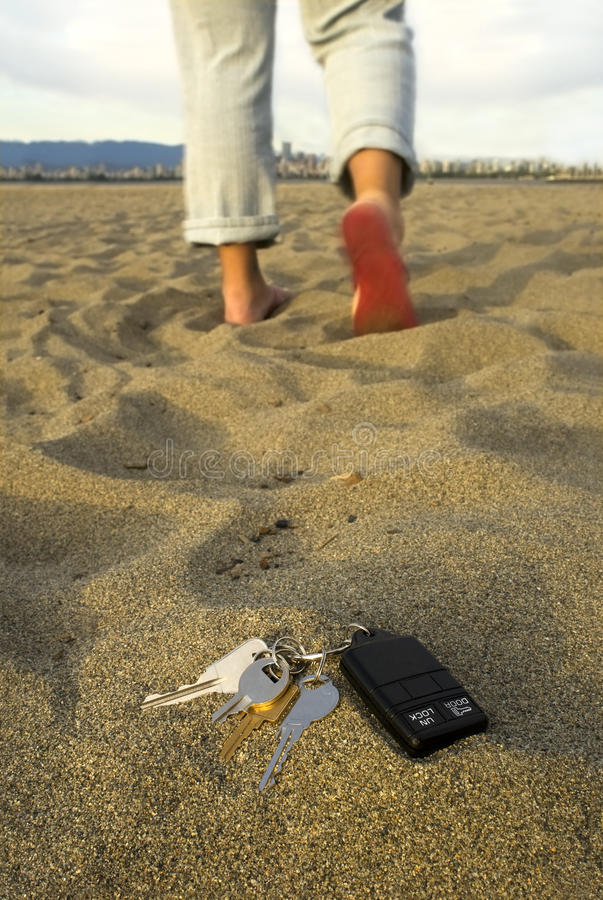Number 9: Top 10 Mistakes Crypto Newbies Make
This continues my series aimed to help crypto newbies avoid costly mistakes. Know some people new to crypto? This should be helpful.
Losing Private Keys or Passwords
It is very easy to lose private keys and passwords.

He has a better chance searching every beach on the planet for his keys than you do for your Bitcoin keys
A few years ago, I tried to make a super duper secure document that had a list of my investments on it. I wanted to ensure my information was not public in case my computer was stolen, but I ended up forgetting my overly complex password (which I hadn’t written down) a couple weeks later and had to start over. Thankfully, nothing important was lost.
Learn to use a password manager like Lastpass or Keepass before buying enough cryptocurrency to make losing it painful: around the $50-$100 level for those in the US.
Users with small amounts of cryptocurrency can safely store it in Coinbase, which is insured.
Buy a Trezor or Nano S if you plan to put more than $1000 into a cryptocurrency. These small devices can be used to generate and hold private keys using a PIN for easy access, and you can store the 24 word seed in a safety deposit box for a few dollars a month in case the device is damaged or lost. Furthermore, three attempts at the PIN will completely wipe the device, making a brute force attack unlikely. Be sure to use a unique PIN for your device. Avoid your social security number, phone number, birth date, etc.
If this was helpful, please click below to follow me and read more in this series!

Thank you for the information! Excuse me for being a total newbie to this, can you send cryptocurrency to a hard wallet while it is stored "off-line"? Or do you have to link to a computer to "power up." Maybe I am missing the boat here on how these hard wallets work.
That's a great question.
The short answer is yes, absolutely.
Remember, the way you prove ownership in a blockchain is by signing a message with your private key. That needs to be kept as safe as possible (Trezor and Ledger make it grandparent friendly).
Your public address is a part of the blockchain. You can view all public addresses of a blockchain at any time, using blockchain explorers like etherscan. It is not private, although you may prefer not to tell yours to people if you hold a lot in it.
Thank you this was very helpful information. I am following!
I stored some vital info on a highly secure USB key called Ironkey - of course, I forgot the password and waited a month before making my 3rd attempt and having it self-destruct. Fortunately, this time it was correct. Lesson learned.
Wow! Glad you didn't lose it.
The great thing about Ledger and Trezor is they are wallets based on a 24 word seed. So when you configure your hardware wallet, you also write down those words and store them as you'd store a key to all your money.
Even if you reset your device by 3 wrong pins, you can input the seed words and you will have access again to your funds.
I imagine banks will soon offer to keep a backup copy for customers.
thanks for the info, Jeff - I'll look into these
Save paper wallet and multiple usb drives with the private key
Thanks for helping newbies!
I'm of the mind that paper wallets and usb drives are counterproductive for the non technical user. Trezor and Ledger make everything so incredibly easy; why not just use those?
Im just saying a good way to have a backup of the wallets. Hardware wallet can get lost too xD
nice, helpful tips.